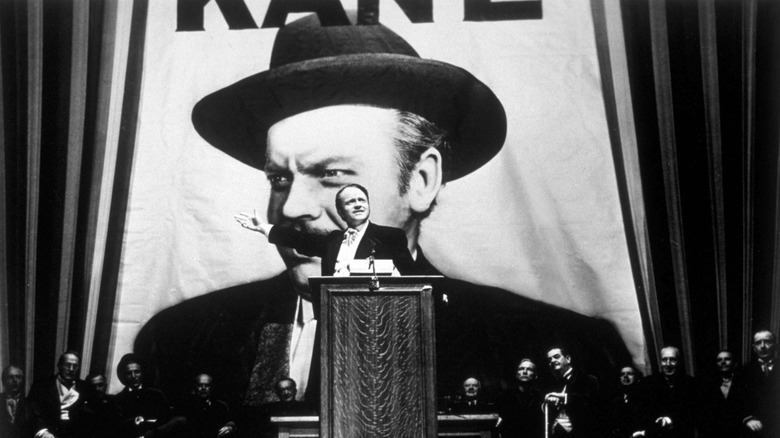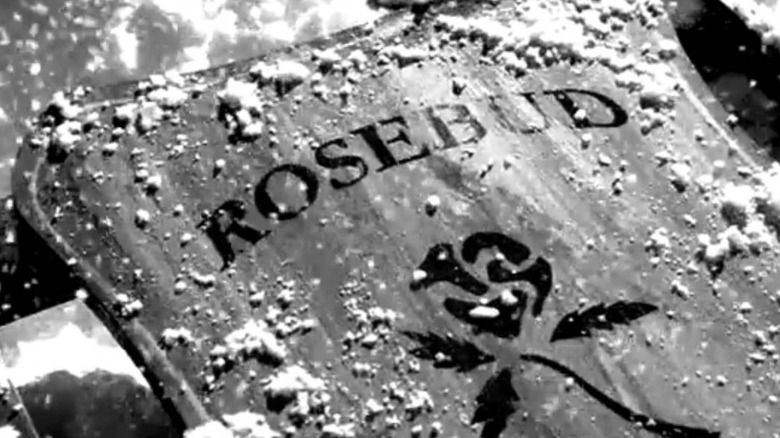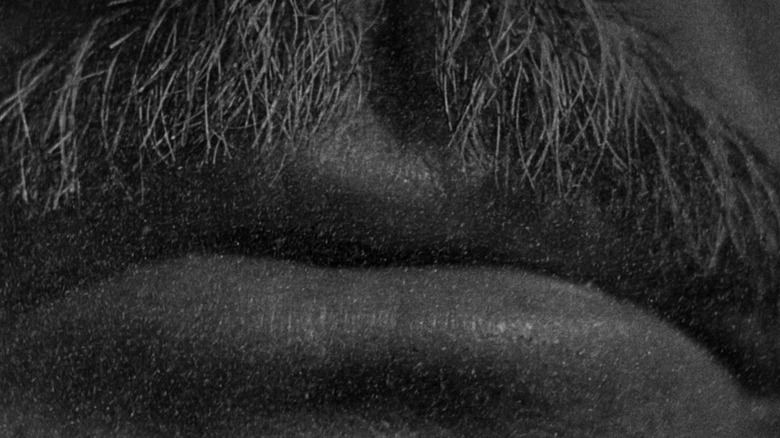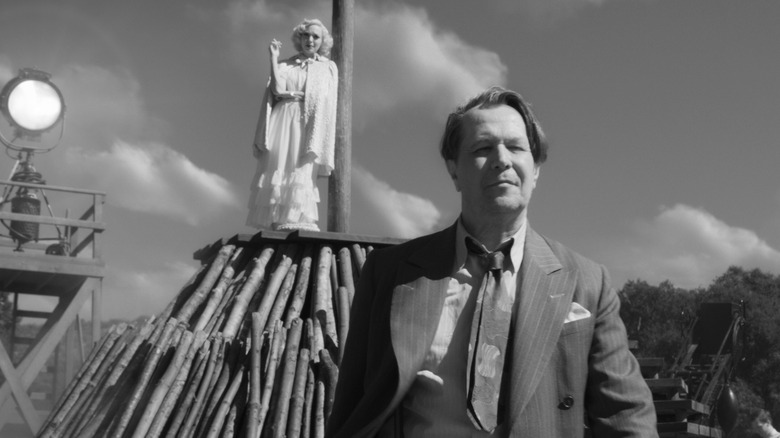
While Orson Welles' Academy Award-winning film is, as of this writing, 80 years old, there may be a small contingent of /Film readers who have not seen "Citizen Kane" and may not yet know about its famous ending. So consider these opening sentences a Spoiler Warning for one of the highest-regarded and famous movies of all time.
For many decades, "Citizen Kane" was practically a punchline in how widely acclaimed it was. Scholars have expounded deeply into its meaning, politics, technique, groundbreaking use of special effects, and Orson Welles' talent for utterly trashing a bedroom. In recent years, however, a counter-evaluation seems to be at work on "Citizen Kane," seen mostly in its loss of the #1 spot on Sight & Sound's once-a-decade poll, which it topped from 1962 up until 2012 (Alfred Hitchcock's "Vertigo" took its place). There was also the recent bombshell that -- horror of horrors -- it no longer has a 100% approval rating on Rotten Tomatoes.
But for readers who exist in that amorphous window between cinematic scholar and casual observer, here is the baggage at the ending of Orson Welles' classic, carefully unpacked.
Let's Get The Sled Out Of The Way

A brief rundown: "Citizen Kane" is a film constructed in flashbacks wherein a reporter is attempting to make sense of the titular newspaper mogul and would-be politician's life via interviews with his old friends, alienated besties, and bitter ex-wives. In one such flashback, we see little Charlie Kane as a boy, frolicking in the snow, riding a sled, and -- we'll learn later -- achieving the most profound happiness he will ever experience.
If you know anything about "Citizen Kane," you know about the sled.
Kane was raised in an incredibly impoverished home with his stern mother (Agnes Moorehead), who will, thanks to various plot machinations, give parenting responsibilities of little Charlie -- as well as a recent discovery of mining wealth -- over to a banker. Charlie is sent away. In a tragic shot, we see little Charlie's sled gathering snow outside his home, a symbol of his happy childhood vanishing.
The sled -- in one of cinema's best-known plot twists -- will be seen again right near the film's end as it is thrown in a fire, one of the many trinkets in Kane's massive tchotchke collection being destroyed after his death. Stenciled on the sled is the word "Rosebud," which was Kane's last word! Whispered on his death bed! Generations of film students now have essays to write!
Kane's dying thought was of that sled and, by extension, the last time he was presumably happy. None of his acumen as a newspaper tycoon, nor his vast accumulated wealth was able to fill the void left in him by having to abandon a simple, impoverished childhood.
"Kane," then, is a criticism -- a comment on the soullessness of American capitalism, all carried on one little sled.
More On Rosebud

Something you should know about Orson Welles is that he was a wonderfully conceited, impish little troublemaker. He had already constructed a massive career and achieved a great deal of acclaim from his theater and radio work before he made "Citizen Kane" at the age of 26 (and if you haven't listened to old episodes of "The Shadow," by all means do). This fame, as you might well imagine, inflated his head a bit, giving him personal license to take on one of the most powerful men in America.
As such, it was pretty well-known at the time that Kane was a stand-in for real-life newspaper mogul William Randolph Hearst. Hearst had a newspaper empire of his own, and, to put it in the briefest possible terms, wasn't always operating on the up-and-up. Welles, with the ambition of a drunken college student intelligently raving about politics during a late night party, decided to stick it to The Man, man.
As such, he supposedly dropped in a very, very personal detail about Hearst's personal life as a codeword to its central mystery. At the time, Hearst was dating actress Marion Davies, a mistress much younger than he.
"Rosebud," popular rumor has it, was... well, let's call it a nickname Hearst had for Davies. So not only was "Rosebud" a symbol for lost innocence destroyed by massive wealth, but a cheeky and somewhat mean-spirited elbow in the ribs to the subject of Welles' satire.
And What About Mank?

What does David Fincher's 2020 biopic "Mank" reveal about the meaning behind "Citizen Kane?" It does, after all, follow the personal life and political upheaval experienced by "Kane" screenwriter Herman J. Mankiewicz (played by Gary Oldman), who was surrounded by wealth, local revolutions, and direct access to the biggest Hollywood muckety mucks -- including Marion Davies (played by Amanda Seyfried). Surely the experiences of Mank himself would come into play in the famous ending of "Citizen Kane," which he wrote himself?
Actually, not really. "Mank" has a lot of superficial parallels, but doesn't really give any new insight into "Citizen Kane" that hadn't already been analyzed to death by generations of film scholars.
Sorry, "Mank." I wish you were better.
Read this next: Orson Welles' Directed Films Ranked Worst To Best
The post Citizen Kane Ending Explained appeared first on /Film.
0 Commentaires